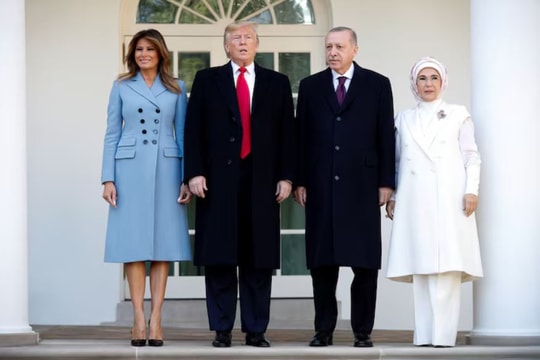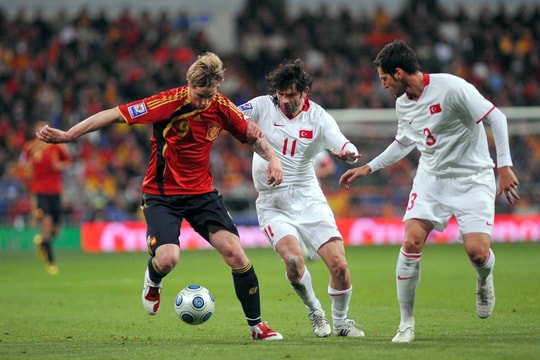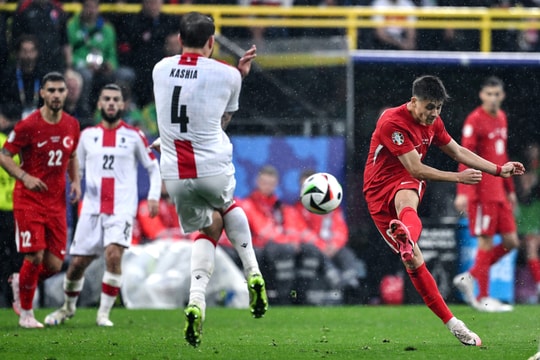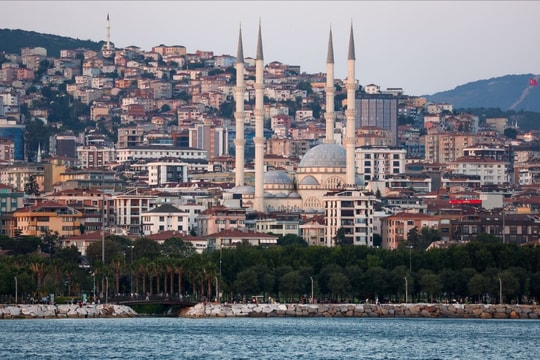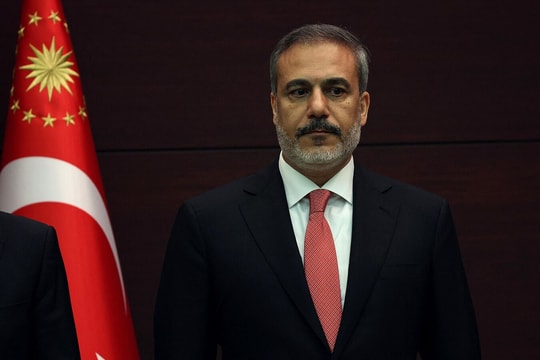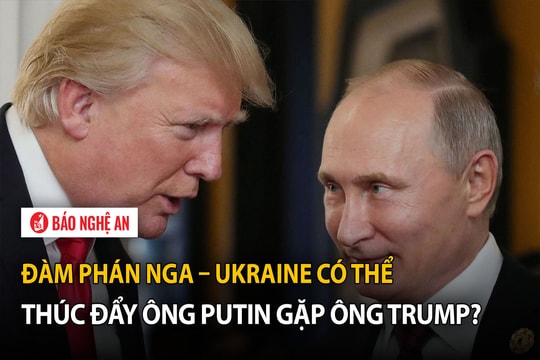Could Türkiye's involvement in Donbass and Crimea cause conflict with Russia?
Türkiye's involvement in Donbass and further into Crimea could open a period of conflict with Russia, although relations between Ankara and Moscow have so far remained relatively good.
As tensions between Ukraine and Russia rise, both countries are building up their military forces near their borders. If the conflict escalates in the energy-rich Donbass region in eastern Ukraine, Kiev will rely on direct support from NATO. But how will Türkiye, with the second-largest army in NATO, react if the conflict spills into the Black Sea region, given its good relations with both Ukraine and Russia?
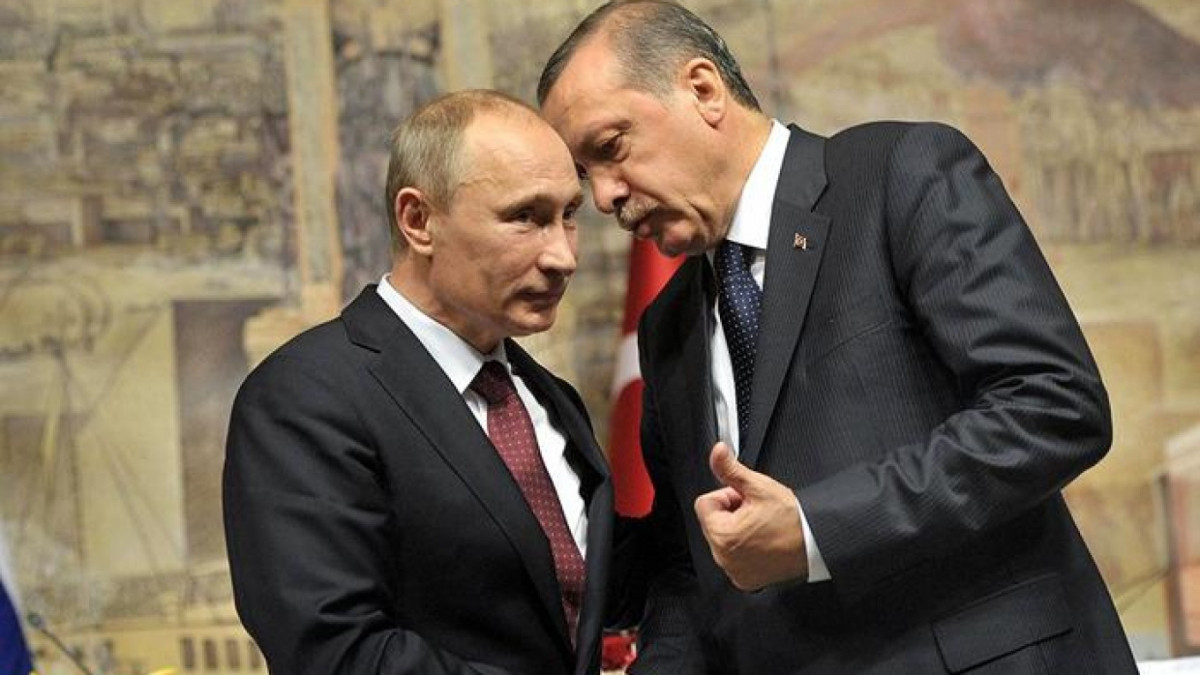 |
| Russian President Putin and Turkish President Erdogan. Photo: Bloomberg |
Be friends with both Russia and Ukraine
Türkiye was relatively passive when the political crisis in Ukraine first broke out in 2013, although it also officially criticized Russia's actions in Crimea in 2014. In the current context, despite tensions in Donbass, Ankara's relations with Moscow remain quite good.
Even as Russia and Türkiye back different sides in the conflicts in Syria, Libya, and Nagorno-Karabakh, the two countries could still forge a de facto “situational alliance.”
Russia and Türkiye have continued to develop trade relations. In 2019, Türkiye purchased the Russian S-400 air defense system despite threats of sanctions from the United States, Turkey's NATO ally. In 2020, Russia completed construction of the Turkish Stream project, allowing Moscow to transport gas to Southern Europe via Turkey without having to go through Ukraine.
Russia is one of Türkiye's top 10 trading partners and gas transit through Turkey would help Ankara's ambitions to become a regional energy hub. Russia is also actively involved in the Akkuyu nuclear power plant project in southern Türkiye.
In addition to its good relations with Russia, Ankara also has quite close economic, political and military ties with Ukraine. In October 2020, the Defense Ministers of Ukraine and Türkiye signed a memorandum of understanding on cooperation in the production of warships, UAVs and turbines. Most recently, Ankara and Kiev held a 2+2 meeting of Defense and Foreign Ministers on March 23.
Türkiye recently announced that its ATAK 2 heavy attack helicopter will enter service in 2023 with Ukrainian-made engines. Meanwhile, Ukraine has purchased 12 Turkish-made Bayraktar TB2 tactical UAVs, which proved effective in the Nagorno-Karabakh conflict last fall and could prove to be a game-changer in the six-year-old conflict in Donbass.
Ukraine plans to buy five more Bayraktars this year and has long-term business cooperation plans with its Black Sea neighbor, including a joint aircraft production project.
Complex balancing problem
There are now signs that Ukraine is preparing for an escalation of the conflict in Donbass, and Türkiye’s active involvement in this issue is the reason Ukrainian officials often refer to Türkiye as a “very reliable strategic partner.”
Meanwhile, the way Russia refers to Türkiye has changed. In 2018, Russian Foreign Minister Sergey Lavrov spoke of promoting a “strategic partnership” between the two countries. However, in 2020, Mr. Lavrov said that “Russia has never considered Türkiye a strategic ally.”
It is not difficult to understand why this change has occurred. Türkiye wants to be the dominant power in the Black Sea region, and Russia is the only real challenge. Besides, Türkiye has historical ties to Crimea, as well as religious and ethnic ties to the Crimean Tatars, a Turkic-speaking minority that makes up 13% of the peninsula’s population.
Crimea was a satellite state of the Ottoman Empire from the 15th to the 18th centuries. The Tatars in Türkiye still consider the peninsula part of the “Turkic world” and would likely want nothing more than for Ankara to become a buffer against Russia.
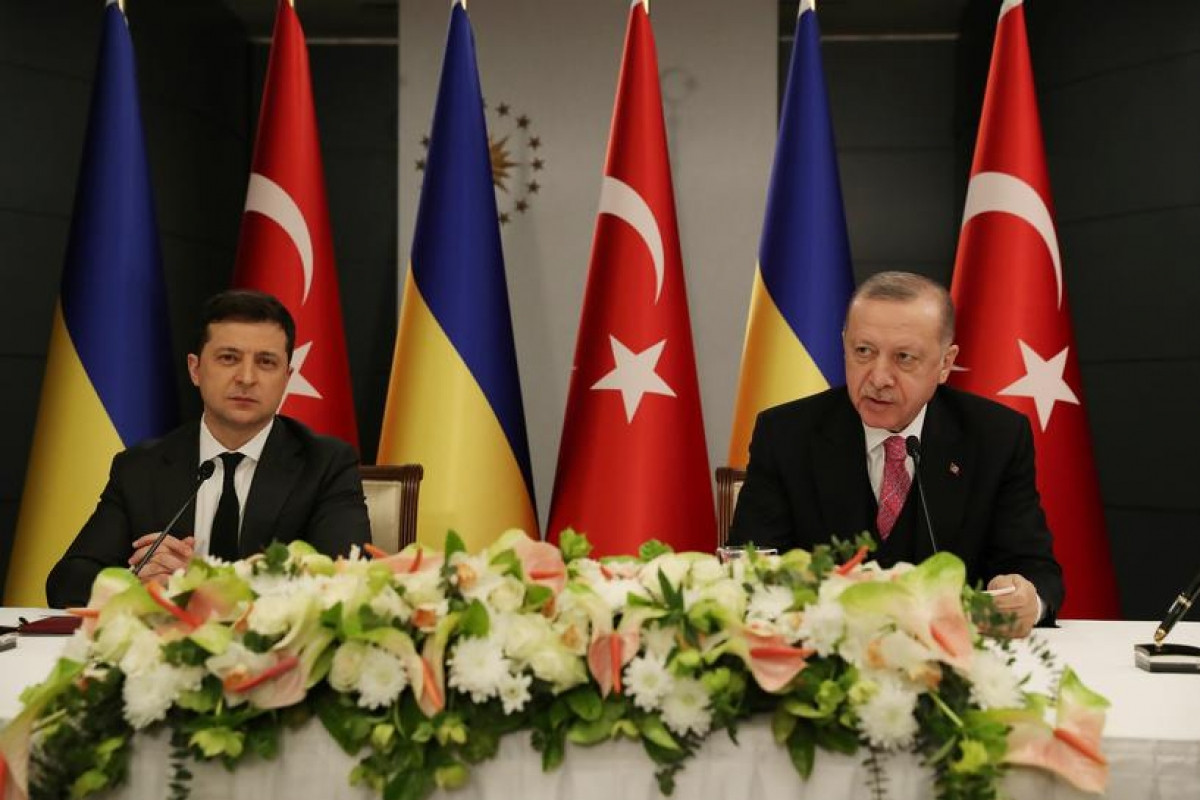 |
| Meeting between Turkish President Erdogan and Ukrainian President Zelensky in Istanbul on April 10. Photo: Reuters |
For the time being, any Turkish involvement in Ukraine would put it in an awkward position, as Ankara has vested interests in maintaining partnerships with both Kiev and Moscow.
But how to maintain that delicate balance, especially in the context of the current tensions between Russia and Ukraine? The most likely scenario is that Türkiye continues to support Kiev, supporting Ukraine’s sovereignty and territorial integrity – at least verbally – but will not do anything to aggravate tensions with Moscow.
After meeting with his Ukrainian counterpart Zelensky in Istanbul on April 10, Turkish President Erdogan called for an end to the “worrying” developments in the Donbass region of eastern Ukraine. He hoped the conflict would be resolved peacefully through dialogue based on diplomatic solutions, in accordance with international law and Ukraine’s territorial integrity.
President Erdogan also emphasized that Türkiye and Ukraine have a 2+2 mechanism to discuss defense industry cooperation, but this is not a move aimed at third countries.
Russia has yet to officially complain about Türkiye’s arms sales to Ukraine, even though Turkish UAVs could help Ukraine retake Donbass. Even if the conflict in the region escalates, it is unlikely to spread to Crimea – at least in the short term.
The longer-term picture is more complicated. If the balance of power in Donbass tilts in Ukraine’s favour, Russia will likely see military ties between Ukraine and Türkiye as a serious problem, especially with respect to Crimea, where Ankara is likely to support Kiev and the Crimean Tatars.
Given the increasingly “aggressive” trend in Ankara’s foreign policy in recent years, it is difficult to rule out the possibility of Turkey’s growing involvement in Donbass. And after Donbass, a new conflict zone may emerge in the Crimean Peninsula.

